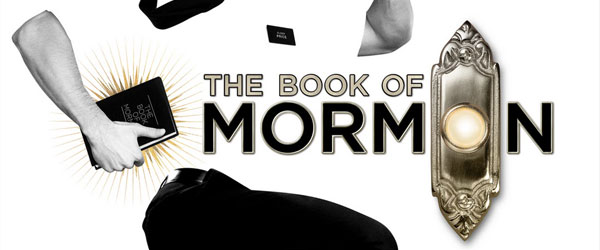Okay, truth time, I haven’t seen The Book of Mormon musical: 1) because I live in Atlanta and 2) being a musical, it probably has long periods where people sing, so, eh. But I have watched interviews with its creators and seen some of their previous treatments of Mormons and I’m pretty sure that the Book of Mormon musical and entertainment like it is going to do more good than harm for the Mormon image, if we’ll let it.
Hollywood Is From Mars, Mormons Are From Venus
Like many religions or ethnicities, Mormons can be a very insular group. It’s not uncommon for your typical Mormon’s entire family to also be Mormon as well as most, if not all, of their friends. I also fall into this category. There isn’t a problem with this per se except that it does sometimes lead to hurt feelings as differing communication styles and values between groups tend to cloud the real intent behind certain message.
Communication Tip for Mormons #1: Different or weird isn’t necessarily derogatory.
“Remember when we used to be polygamists? That was weird, amiright?”
Mormons are sometimes loath to point out the ways which we are different from everyone else. Sure we may refer to ourselves as a “peculiar people”, but with other religions and groups we are much more likely to scream, “hey, we’re normal, look at how normal we are being!” This, unfortunately, is not normal and makes us seem even more awkward. Sure, it’s good to recognize common ground, but Hollywood actually values different, even “broken”, as long as that broken is self-aware. A perception that many Hollywoodians have of Mormons is that we’re an ultra-suburbanized Southern Baptist Convention. Not flinching from the oddity our more unconventional beliefs past and present instead of treating them with embarrassed shame would probably elevate us from “evangeligalish” to “weird” to “weirdly fascinating”.
Communication Tip for Mormons #2: Criticism isn’t a sin to non-Mormons
Mormons can be extremely reticent to criticize themselves as a group and the church as an organization. While it’s true that criticism at can be annoying all the way to damaging, many Mormons feel as though acknowledging inconsistencies is the first step on a definite path to burning the Book of Mormon while doing meth and staring in porn, because, you know, there’s no way one can be committed spiritually to a religion without 100% acceptance of all the doctrines *cough* jewsandcatholics *cough*. People tend to be okay with flaws, even intrinsic ones, as the character Gary on The Book of Mormon musical’s creator’s show South Park points out as a Mormon character confronts the kids of the town who think his beliefs are ridiculous:
“Maybe us Mormons do believe in crazy stories that make absolutely no sense, and maybe Joseph Smith did make it all up. But I have a great life and a great family, and I have the Book of Mormon to thank for that. The truth is, I don?t care if Joseph Smith made it all up, because what the Church teaches now is loving your family, being nice and helping people. And even though people in this town might think that?s stupid, I still choose to believe in it. All I ever did was try to be your friend, Stan, but you’re so high and mighty you couldn’t look past my religion and just be my friend back. You’ve got a lot of growing up to do, buddy. “
And yes, I did intentionally leave off the last sentence of Gary’s speech, which brings me to our next point:
Communication Tip for Mormons #3: Offensive isn’t always an attack
The Book of Mormon musical is probably guaranteed to be extremely offensive. Not just to Mormons, but to anyone who doesn’t like persistent vulgar language, strong sexual content and a lot of bodily function humor. It doesn’t mean, however, that the show is simply mocking Mormon’s tendency towards clean speech…well, it is mocking that, but in a way that one makes fun of the really effeminate guy in one’s circle of friends. Sure, you may laugh scornfully at his enthusiasm over women’s shoes, but, I doesn’t mean you don’t like the guy. Sure, you may not like the coarse content, but the coarse content, itself, isn’t necessarily an indicator of derision. To the contrary, in the case of The Book of Mormon musical, by all accounts, Mormons are ridiculed with a familiarity verging on endearment.
Take for example, the showing of the temple ceremony on Big Love. I haven’t seen the episode, nor do I plan to, and while I likely would be personally offended by its content, I’m not offended by its existence, which as I understand was presented in a matter-of-fact way. The show wanted to explore the dynamics of a culture which included all of that culture’s rituals – even literal rituals. It wasn’t necessarily a judgement, it just was, and while I don’t value its portrayal, I don’t think the producers hate Mormons. Most of them, anyway.
By insisting recognition on the global (or the very least, national) religious stage, we present our entire selves, not just the facets of our collective personality that we want everyone to focus on. This will require some discipline and self-confidence as we can’t control what people say about us. We can, however, control our reaction to what they say and not easily take offense, whether it is intended or not. After all, at least they’re talking.

No Trackbacks
One Comment
Love & agree with the last paragraph.